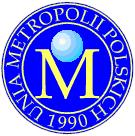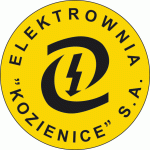
This is especially visible in the case of the metropolis of Szczecin, which did not manage to ward off a breakdown even in spite of the fact that it has the only ring-shaped disappearing system in our country, as well as three power stations in the metropolitan area (two of them actually in the vicinity of the city) and the huge system power station Dolna Odra. These events show how important it is to adapt local energy sources - power stations and combined heat and power stations - to the regime of working in relation to so-called allocated areas, i.e. to the regime of island work. This requires implementation of modern solutions based on new IT solutions allowing for automatic powering of power stations in cases where they are cut off from the network and so-called auto-start.
The current state of affairs in respect of the above is described in two reports: one elaborated by the Chancellery of the President, and the second by a team put together by PSE-Operator; both of these documents show how imperfect the Polish power system is and what delays we face in terms of modernization of transmission networks. So how can we increase the energy safety of metropolitan areas?
It seems that the most effective remedy could be prevention. This concerns, for example, the effects of the breakdown - it is cheaper to prevent these effects from coming into existence than to correct them. Moreover, in light of the fact that buying allowances for CO2 emission and restructuring of the technological infrastructure and transmission are now so necessary, it seems that the particularly essential challenge is reduction of power consumption by both businesses and individual citizens.
-
Piotr Krzystek - President of Szczecin;
-
Piotr Uszok - President of Katowice
-
Marek Trawinski - Vice-president of the Board, PGE Polska Grupa Energetyczna SA;
-
Waldemar Skomudek - Vice-president of the Board, PSE Operator SA;
-
Andrzej Szymanski - President of the Board, Landis + Gyr Sp. z o.o.;
-
Andrzej Rejner - Director of Regulation, Vattenfall Distribution Poland S.A ;
-
Andrzej Lubiatowski - Director of The Union of Polish Metropolises;
-
Wojciech Wlodarczak, President of the Board, Wartsila Polska;
-
Experts from companies such as: IBM, Polkomtel, AT Kearney.
EVENT'S PARTNERS:





